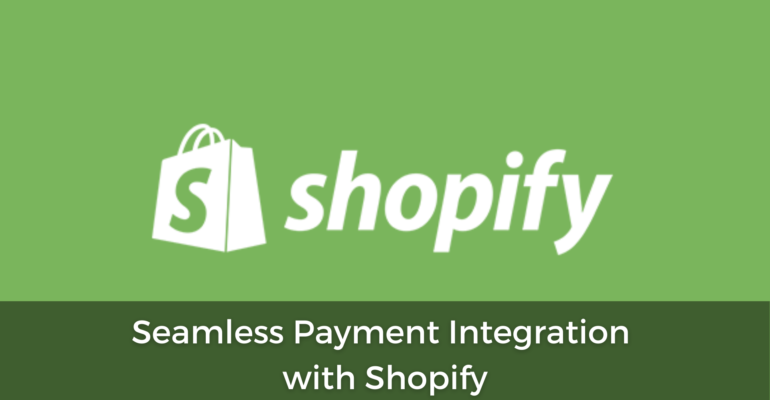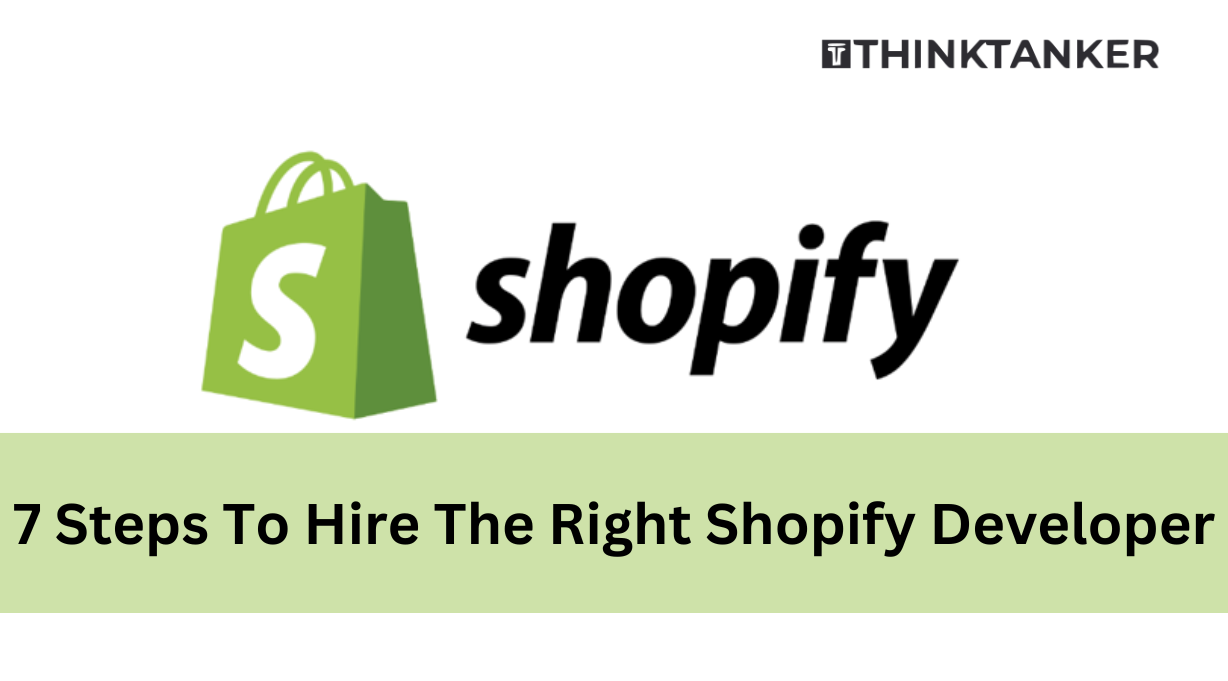Seamless Payment Integration with Shopify

Seamless Payment Integration with Shopify
Shopify is one of the easiest ways to build an eCommerce store with all its inherent capabilities. Its simplicity, wide range of online marketing tools, and customization options make it the number one choice for an eCommerce development company to empower clients with the right online presence to establish and grow their brand.
But most people underestimate the importance of providing a seamless payment solution for purchases. Even if your website is delightful in design, with beautiful product images and descriptions, if your customers cannot pay as per their convenience, all other efforts are ultimately wasted.
The three important things for payment solutions are the speed of transaction, user experience, and security.
Shopify makes it easy for you to choose the right payment methods that are the perfect fit for your customers. Below are some of the critical points to keep in mind before you hire a Shopify development agency that can deliver as per your needs.
Payment Gateways
A Payment Gateway is a service for authorizing payments made by customers to you. The gateway encrypts and transmits all the transaction data securely. Moreover, it helps to confirm that the transaction is processed and cleared. They are ultimately responsible for the transaction, user experience, and security, as mentioned before. You can hire Shopify developers or a website app development company who can guide you with the right payment solutions.
Choosing the right Payment Gateway for you
There are several parameters on which to choose the right Payment Gateway for your customers. These include:
Site Integration:
There are mainly two methods of integrating payment gateways used in Shopify development services:
1. Hosting payment systems:
Payment providers can provide their own payment pages that are integrated into your Shopify website. Payment processing takes place in their servers, and they are ultimately responsible for the security of the transaction. But the disadvantage is that the payment page cannot be customized according to your branding, and the customer/ payment information is not always available to you later. Small stores with limited requirements can opt for this method.
2. Integrated payment systems
Here, the integration to your Shopify website takes place through APIs. The complete control is with you, including transaction and customer data. The main advantage is that it helps to create a customer database that you can use for various customer engagement activities. Plus, your Shopify development company can customize as per your overall branding requirements. Wherever necessary, you can provide only specific payment methods e.g., as per your customers’ location, or depending on product pricing, etc.
Medium and large eCommerce stores prefer this method of integration.
Security options:
Payment gateways can be measured on their security capabilities depending on the type of tools and methods that they offer to detect and prevent fraud including compliance certifications, address verification, payment card tokenization, biometric authentication, etc. Depending on your market regulation and compliance requirements, you should choose those that can help you in these efforts. Your Shopify website security should also be able to work seamlessly with the payment gateway options.
1.Currency:
If your eCommerce store is present in more than one geographical location, you should ensure that your customers can pay in their own currency. This requires payment gateways that support all your specified currencies, as well as dynamic currency conversion calculator. Shopify is also enabling cryptocurrency payments in markets that accept it.
2.Payment charges:
Again, payment charges are variable as per the methods chosen by your customers. For example, Visa and Mastercard charge an average of 3% transaction fee for international transactions. If offering credit card payments, you will have to pay exchange fees, transaction evaluation fees, and a transaction processing fee. These fees are levied by card-issuing banks, card payment networks, and payment systems. Especially when starting out, you can choose the payment gateway with the least charges, and upgrade as the number of transactions increase.
3.Technical support:
It is important that you should be able to quickly and seamlessly contact the payment gateway support center to resolve any issues that may crop up in payment transactions. Usually, payment gateways have strict SLAs for response time, which provides an average time taken to resolve issues. Customers should have a seamless experience of payments, and if any issue arises, you should be able to resolve it at the earliest.
Payment Processor requirements:
When you proceed to register your Shopify store, the payment processor will require compliances for verification such as:
- Your site must include the legal name, and the administration contact details
- Privacy policy, Refund policy, Shipping policy, etc.
- Secure payment page
- Payment currency, etc.
Shopify Fraud Prevention
Transactions not authorized by customers are deemed fraudulent transactions. When a credit cardholder reaches out to their bank with a dispute about your shop’s charge, the bank makes a chargeback or inquiry. With a chargeback, the bank takes the disputed amount from your account right away. The cardholder’s bank also charges you a chargeback fee. Sometimes, the bank only raises an inquiry, in which case the amount is not deducted, but you must resolve the inquiry by submitting additional proof of the transaction.
In any case, such disputed transactions cost time and effort, plus the chargeback fee if you are not too careful.
Shopify offers excellent fraud analysis that uses machine-learning algorithms to identify such suspicious transactions so you can take additional steps to confirm the validity of the transaction. Some of the ways which help you investigate suspicious orders are:
- Verifying IP address
- Calling the buyer directly
- Verifying that billing and shipping addresses match
- Check if there have been any prior orders from the same shipping address
Make sure that you hire Shopify developers who understand the details of payment gateways before hiring to ensure maximum efficiency and faster Go-to-market.
Accelerated Checkouts and dynamic checkout buttons
Accelerated (express) checkouts record customer payment and shipping information so buyers who have placed orders with you once do not have to resubmit their information for further purchases at checkout.
You can also use dynamic checkout buttons on product pages where customers can directly go to the checkout from the product page while skipping the cart.
Best Shopify Payment gateways
Though there are a wide range of payment gateways available for Shopify, some of them are more popular than the others due to the efficiency they offer to your customers.
1.PayPal
Most popular with Shopify owners worldwide due to their popularity with users. They offer a wide range of options and is also the default payment gateway for Shopify.
2.Stripe
Powerful payment gateway platform that is cloud-based for extra flexibility, reliability, and offers many tools to design your payment processing gateway ideally.
3.Shopify payments
Owned exclusively by Shopify, this is the simplest payment gateway integration that eliminates the use of third-party payment gateways for extra security and lesser charges. However, it is not available in all countries now.
4.Amazon pay
A huge number of Amazon users can utilize this payment for seamless and trustworthy payments since the details are verified through their Amazon account information.
5.Authorize.net
The perfect payment gateway for businesses of all sizes and plans. Their payment management and payment processing services help customize your customer payment experience with security.
Conclusion
Payment capabilities are critical for the success of your online stores. In this regard, Shopify is the clear winner as it offers not only a wide range of options to cater to your customers’ preferences, but also provides security and fraud detection/ prevention features for a hassle-free shopping experience for you and your users.





